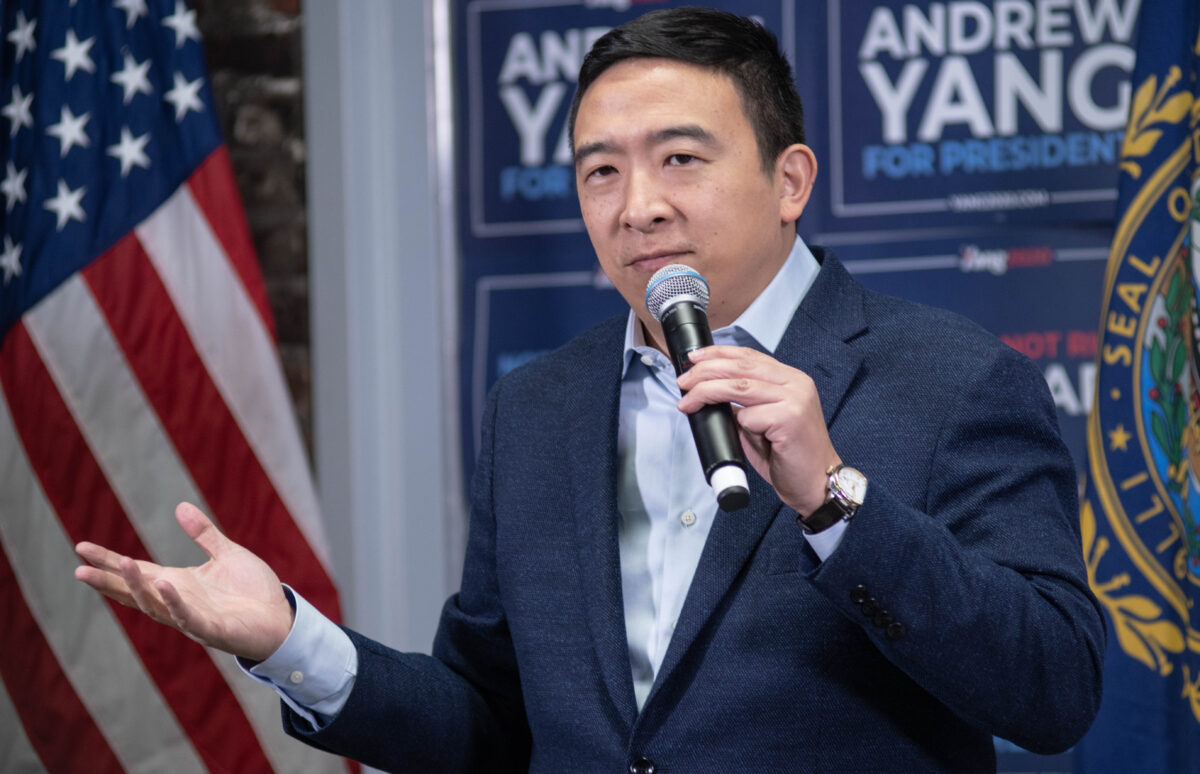TLDR;
Contents
- Andrew Yang says AI job displacement is occurring faster than he predicted in 2019.
- AI is already replacing entire departments in tech and design industries.
- The next generation may not have access to the same entry-level work opportunities.
- Yang calls for urgent federal regulation to protect workers amid breakneck AI development.
Former U.S. presidential candidate Andrew Yang has sounded a fresh alarm over the accelerating disruption artificial intelligence is causing across the American workforce.
Speaking on CNBC’s Squawk Box on Thursday, Yang said the pace of AI advancement is outstripping even his dire forecasts during his 2020 campaign.
“It’s here even faster than I’d imagined back in 2019 and 2020,” Yang said, pointing to conversations with CEOs who have begun replacing “thousands of customer service workers with AI, entire design departments, even coders.”
He warned that a fundamental restructuring of the workforce is already underway, with long-assumed job security in fields like computer science quickly eroding.
Tech’s New Frontier Leaves Workers Behind
Yang’s comments come in the wake of Amazon CEO Andy Jassy’s internal memo on Tuesday, which forecasted a future with fewer corporate roles as AI takes over a growing number of functions. Jassy advised employees to figure out “how to get more done with scrappier teams,” hinting that AI will not only complement work but replace large swaths of it.
Yang doesn’t see this trend reversing anytime soon. He described a common scenario already taking shape in companies.
“You have a department of six people, let’s say coders or designers, and then you end up eliminating four or five of them. And then there’s one designer or coder empowered by AI.” This shift, he said, is “going to play out over and over again.”
For Yang, the implications extend beyond just job loss. “I fear for the next generation,” he added, explaining that early-career opportunities, once crucial for gaining experience, are drying up. This lack of entry-level work could undercut career development for millions of young people, especially recent graduates and blue-collar workers like truck drivers, whose roles are also being automated.
Warnings Amid a Regulatory Void
Despite these dramatic changes, Yang argued that U.S. lawmakers remain woefully behind. “Unfortunately, right now our political class is very, very far away from these problems,” he said. While some industry leaders like Jassy and Anthropic’s Dario Amodei have acknowledged the AI job cuts, Yang believes corporate transparency isn’t enough.
He called for bold political action to match the scale of the disruption. “Their responsibility is not society-wide,” Yang said of major tech firms. “Their responsibility is just to make the organization successful. And those interests are going to diverge from the average worker’s pretty sharply.”
Federal regulation is urgently needed, he said, especially as some states attempt to set their own AI rules in the absence of national guidance. Yang cautioned that without a cohesive federal framework, a “Wild West” environment will emerge, driven by corporate incentives and geopolitical pressure to stay ahead of countries like China.
A Call for Universal Basic Income
For Yang, who famously advocated for universal basic income (UBI) during his campaign, the answer still lies in ensuring people benefit from AI-driven prosperity. When asked if UBI could be a solution, Yang responded unequivocally; “To me, that is the answer.”
But bridging the gap between disruption and relief, he emphasized, requires government to step in. Otherwise, as he warned, the people most affected, young workers, low-income earners, and those in disappearing roles—will be left wondering “where did my job go?”


